Jewish History: Holocaust
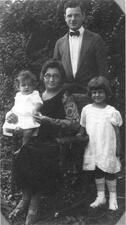
Bessie Abramowitz Hillman
Dorothea Hirschfeld
Too old, not properly educated, a member of the Social-Democrat Party, and a Jewish woman, Dorothea Hirschfeld nevertheless succeeded in entering the civil service at the age of forty-three. She directed the Berlin Center for Social Work and Care of the Poor in Berlin from 1924 to 1929, and despite being pushed out of work by the Nazis, survived deportation and remained in Germany until her death in 1966.
Gertrude Hirschler
A celebrated translator of deft skill and a woman of great principle, Gertrude Hirschler refused to translate, edit, or publish any book that did not mesh with her ideals or beliefs. Hirschler’s literary contributions are highly regarded in the areas of Jewish history, the Holocaust, religious literature, and Zionism.
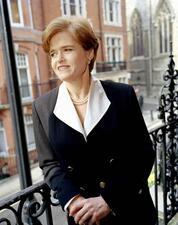
Historians in the United States
American Jewish women have made important contributions to historical scholarship, especially in the arenas of social history of the United States and Europe, women’s history, and Jewish history. Jewish women, sensitive to the situations of minority groups, became pioneers in these fields as they developed from the 1970s on.
Holocaust Literature
Literature by and about women and the Holocaust explores the impact of the Nazi genocide on women during and after the war, its impact on subsequent generations, and the reflections of women on the implications of the Holocaust. Encompassing a range of literary genres, including fiction, poetry, drama and memoir, women’s Holocaust writing explores the intersection of history, imagination, Jewishness and gender.
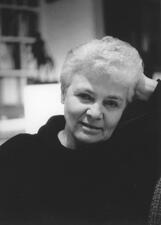
Holocaust Studies in the United States
Holocaust Survivors: Rescue and Resettlement in the United States
Fanny E. Holtzmann
Fanny E. Holtzmann made waves as a lawyer for stars of Broadway and Hollywood as well as luminaries of world politics such as the Romanoffs.
International Council of Jewish Women
The International Council of Jewish Women (ICJW) is a Jewish women's organization established at the beginning of the twentieth century, which evolved with the needs and events over time. As a women’s NGO, ICJW participates in a variety of projects promoting women’s rights and human rights, motivated by its roots in Judaism.
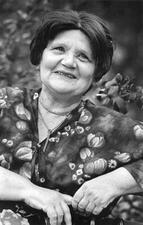
Israeli Women's Writing in Hebrew: 1948-2004
Women writers faced many obstacles in the early years of modern Hebrew, but by the end of the twentieth century they had overcome marginalization to become a central part of the country’s literature. The achievements of women’s writing in Hebrew rank among the unquestionable triumphs of Israeli feminism.
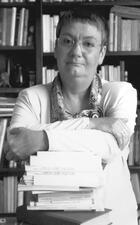
Modern Italy
Jewish women were crucial both to changes in post-emancipation Italian Jewish life and to the overall condition of women in modern Italy. This article reflects on the changes in the role of Jewish women in modern Italy within the Jewish press and institutions, their activism in shaping a secular civil society, and their experiences through the Fascist regime, the trauma of the 1938 Racial laws, emigration, resistance, deportation, survival, and reconstruction.
Izieu, Women of
Nazi Klaus Barbie’s capture, deportation, and murder of forty-four Jewish children living at a home in Izieu, France, in 1944 is known primarily as a story of children, but the bravery of five women is also a significant part of the tale. Sabine Zlatin, Léa Feldblum, Suzanne Levan-Reifman, Fourtunée Benguigui, and Ita-Rosa Halaunbrenner were workers at the home or mothers of children who lived there. They played critical roles testifying against Barbie in his 1987.
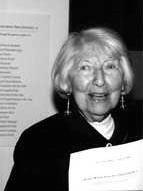
Anne Jackson
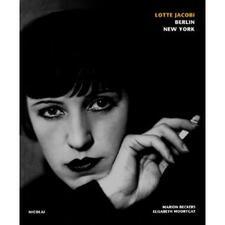
Lotte Jacobi
After leaving Nazi Germany in 1935, Lotte Jacobi became a renowned photographer in New York as she captured intimate portraits of prominent Americans such as Robert Frost, Eleanor Roosevelt, and Paul Robeson. Jacobi was highly interested in politics and an active delegate to the Democratic National Convention. She was known for engaging her subjects in rich conversation as she photographed them.
Dore Jacobs
Dore Jacobs developed her own pedagogy, which viewed physical education as a holistic project, out of which came her own unique method of gymnastics. In 1923 she founded her School for Physical Education and Rhythmic Development; she was also a founding member of the German socialist organization called the Bund-Gemeinschaft für Sozialistisches Leben.

Rose Gell Jacobs
Anna Jacobson
Geneviève Janssen-Pevtschin
Geneviève Janssen-Pevtschin was an accomplished lawyer, magistrate, and human rights activist in Belgium. She was active in resistance movements during World War II and is remembered for her passion, respect for human liberty, and dignity.
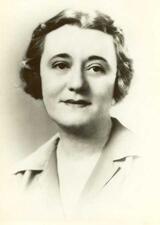
Laura Margolis Jarblum
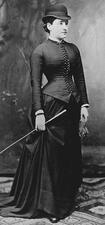
Jewish Feminism in Post-Holocaust Germany
Jewish feminism in Germany today is an expression of a wide-reaching renewal of Judaism occurring in many European countries since the early 1990s. German Jewish feminists built on the historical tradition of the Jewish women’s movement in pre-Holocaust Germany and has since taken many paths.
Jewish Mothers of the Plaza de Mayo
The Jewish women who formed part of the Mothers of the Plaza de Mayo were pivotal to the human rights movement in Argentina, fighting for truth and justice for victims of the 1976-1983 dictatorship that resulted in 30,000 disappeared, tortured, and killed.
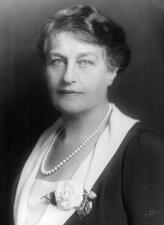
Jewish Museums in the United States
American Jewish women have played an outsized role in the foundation of Jewish museums all over the country. Barred from traditional spaces of power in the early twentieth century, many women—adjacent to power as Rebbetzins, philanthropists, and secretaries of libraries and other Jewish organizations—leveraged their connections to found new kinds of cultural institutions: museums.
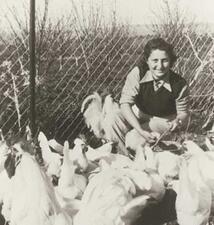
Jewish Women Partisans
The testimonies of Jewish women partisans present a more complex gendered picture of partisan activism than the conventional portrayal of an exclusively male arena of armed guerillas. Women smuggled guns and ammunitions, fought in armed combat, engaged in reconnaissance activities, mobilized resistance, documented partisan activities, tended the wounded, and rescued and sheltered fellow Jews.
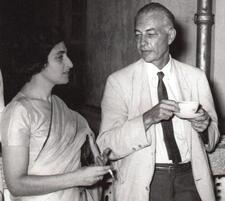
Ruth Prawer Jhabvala
Ruth Prawer Jhabvala was a novelist, short story writer, and two-time Academy Award-winning screenwriter. Known for her nuanced depiction of exile and identity, she is the only person to have won both a Booker Prize and an Oscar.
Anna Maria Jokl
Author, psychoanalyst, and scriptwriter Anna Maria Jokl was greatly influenced by the many places she lived: Vienna, Berlin, Prague, London, Zurich, and Jerusalem. Forced to flee countries twice because of Nazism, Jokl is best known for her German children’s books. Her prolific career includes accomplishments in radio broadcasting, psychoanalytic writing, and autobiographical prose.


